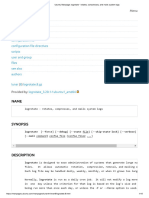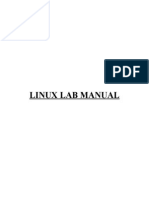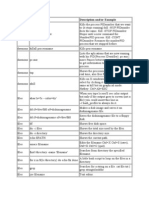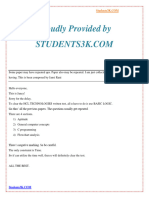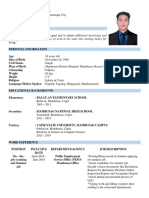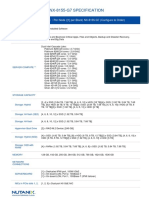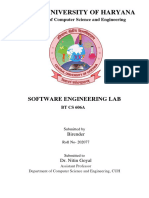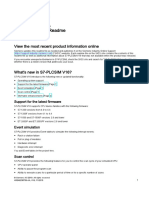0% found this document useful (0 votes)
33 views2 pagesLog Rotation
Log rotation is implemented to manage log files and prevent filesystem alerts. A configuration file is created in /etc/logrotate.d/ with specific entries for log management, including options for compression and file handling. Validation commands are provided to test and execute the log rotation process.
Uploaded by
bharadwajgopi.pvCopyright
© © All Rights Reserved
We take content rights seriously. If you suspect this is your content, claim it here.
Available Formats
Download as PDF, TXT or read online on Scribd
0% found this document useful (0 votes)
33 views2 pagesLog Rotation
Log rotation is implemented to manage log files and prevent filesystem alerts. A configuration file is created in /etc/logrotate.d/ with specific entries for log management, including options for compression and file handling. Validation commands are provided to test and execute the log rotation process.
Uploaded by
bharadwajgopi.pvCopyright
© © All Rights Reserved
We take content rights seriously. If you suspect this is your content, claim it here.
Available Formats
Download as PDF, TXT or read online on Scribd
/ 2





